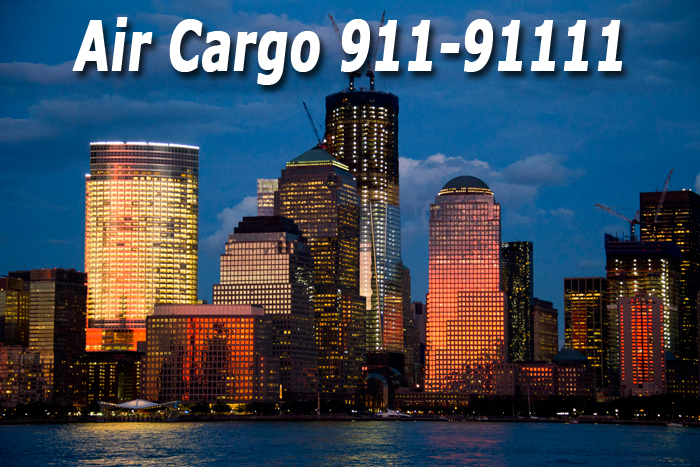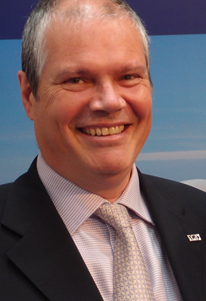
 Oliver
Evans Oliver
Evans
Chief Cargo Officer
Swiss International Airlines
I was in the regional head office
of my former employer, we were locked up in a top level meeting which
was interrupted by the assistant who said "something really big"
was going on, and she thought we should know. We ignored her and carried
on, so that it was only hours later that we emerged, all the sensible
people had left the office already, and I only learned about the enormity
of the event when I got home that evening and saw the television. Yet
from that moment on I was gripped, not only because of the drama of
the pictures, but because I had worked for several years on the 49th
floor of one of the towers and had a chest of memories and connections
from that office.
My initial thoughts were therefore a largely
incoherent jumble of questions: Who did this? Why? Were any of the people
who shared that office with me still working there, and if so were they
safe? Slowly, on that day and successive days, and intermittently ever
since, my brain restored order in my thoughts, allowed me to digest
the news and the pain.
The core of my reflection is always the
recognition that we human beings, under very special and fortunately
relatively rare circumstances, are capable of the most horrific brutality
towards each other, and in fact, there is no limit to what we will do.
This has happened in all parts of the world and throughout history,
and the holocaust or 9/11 are just particularly shocking examples.
The most disturbing thing is that it is
not only desperation that drives us to such acts (poverty, lack of jobs
or prospects, lack of education), but also fanaticism, so that well
educated and skilled people (like the 9/11 pilots) pervert their intelligence
to such scarcely imaginable goals. And it is incumbent upon all of us
to reflect upon what the circumstances are, that bring our brothers
or sisters from whatever cultural background they come from, to such
acts of ghastly cruelty.
That day of course changed the course
of history. It triggered a chain of events that led to the sad years
of sectarian violence in Iraq, but it is also connected to the possible
new dawn in parts of the Middle East and Africa that had only known
repression and inequality for decades.
It also changed the course of air cargo
history. It triggered knee-jerk reactions from governments and regulatory
authorities, resulting in improved security at a huge cost. Not only
the cost of x-ray equipment and all of the policing that goes on around
it, but also the cost of countless hours of often futile, uncoordinated
debate and reactions.
Security is akin to an armaments race,
there will never be 100% security because there will always be perverted
brains plotting to find the next loophole. Ultimate security will come
about when we have found ways of sharing wealth and opportunities in
an equitable fashion all across the globe.
In the meantime all we air cargo professionals
can do is to strive for that goal of 100% security, by implementing
intelligent, coordinated layers of deterrence throughout our supply
chains.
Those endless hours of debate do have
a happy ending though, as we are seeing today far more coordination
between governments, and between industry and regulatory authorities,
than ever before. And numerous people are busy working on far better
technology and processes so that hopefully, one day, you and I will
be able to travel without the ludicrous and horribly expensive burden
of taking off our shoes or presenting a laptop.
|




